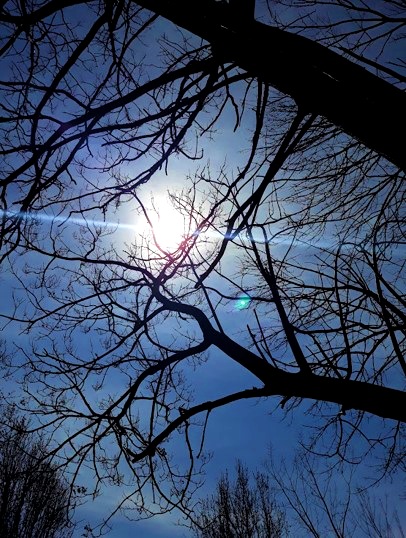
“A Different Fast”
“6 Is not this the fast that I choose:
to loosen the bonds of injustice,
to undo the thongs of the yoke,
to let the oppressed go free,
and to break every yoke?
7 Is it not to share your bread with the hungry,
and bring the homeless poor into your house;
when you see the naked, to cover them,
and not to hide yourself from your own kin?
8 Then your light shall break forth like the dawn,
and your healing shall spring up quickly;
your vindicator shall go before you,
the glory of the Lord shall be your rear guard.
9 Then you shall call, and the Lord will answer;
you shall cry for help, and he will say, Here I am.”
Isaiah 58:6-9a, NRSV
In the 1970 CBC Lenten booklet, Rev. Ted Pitt, who was the pastor then, shared a story from Glenn Asquith:
“During my senior year at college, a professor decided to make the meaning of the Lenten season more real to us by organizing a three-day fast in which we attempted to express sympathy and empathy with those suffering and dying in Vietnam. About forty of us sat at separate tables in the dining hall and had juice for breakfast and water for lunch and dinner. By the morning of the third day, I became so racked with the pain I couldn’t stand it any longer. I went to the Sears coffee shop when no one would see me and had a big dinner. Later, unable to eat with others fasting in good conscience, I had lunch at a regular table in the dining hall. After lunch, the professor asked me what happened. I explained I couldn’t stand the feelings of sickness and pain any longer. With an expression more of sorrow than anger, he said, “But you were just beginning to experience the suffering that the Vietnamese feel!”
Though I didn’t follow through on the commitment to fast, the experience taught me a lesson. Safe and secure in a college environment while many other Americans my age were suffering and dying in Vietnam, I couldn’t even withstand a three-day fast! In a broader sense, how many of us Christians can remember or even comprehend the kind of suffering Jesus and the early martyrs experienced?”
The prophet Isaiah spoke about fasting but not the usual fast that the religious people of his time practiced. He differentiated it from the usual practices of abstinence from food, the wearing of sackcloth, and the use of ash to signify remorse for sins –correct religious rituals but unacceptable to God. Isaiah shouted a warning to the people that God will not accept their fast unless they repented. The true fast, as God defined it, was about doing justice, and God was not vague about his definition.
This is a different fast: letting the oppressed go free, feeding the hungry, clothing the naked, giving shelter to the homeless, and caring for one’s family and relatives.
Instead of abstaining, it is about obtaining: obtaining justice for those treated unfairly, obtaining freedom for the oppressed, obtaining food for the hungry, shelter for the homeless, clothing for the naked, and helping our family and relatives. This fast is not about being empty but being full, and it’s a fullness of life for everyone, families and strangers alike, and as Jesus had taught us, even for our enemies.
As we begin the season of Lent on March 2, I invite you to pray and observe a different fast, a fast that goes beyond personal piety, a fast that is about doing acts of justice, mercy, and kindness as God desires – not just for some but for all. When we do this fast, our witness will be like the light at dawn. Our righteous deeds and the glory of the Lord will guide us to a hopeful future. And God will be attentive to our prayer and worship, bringing healing to our land and the world God loves so much.
Have a Blessed and Meaningful Lenten Season.
Yours in Christ’s Peace and Love,
Pastor Carla Romarate-Knipel

